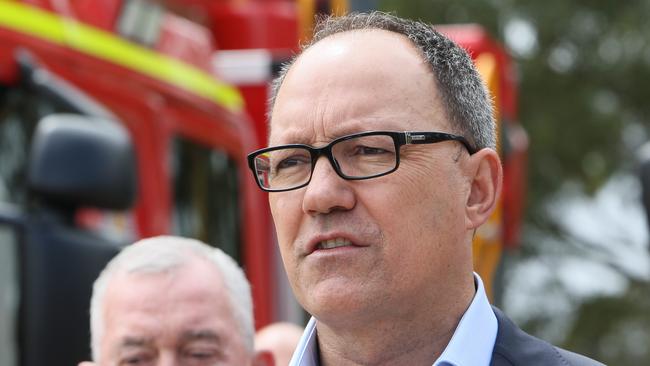States fight Malcolm Turnbull’s UN torture deal
A Turnbull government pledge to give UN inspectors unrestricted access to prisons has sparked a revolt from the states.

A controversial Turnbull government pledge to give United Nations inspectors unrestricted access to prisons and places of detention has sparked a revolt from state and territory governments, who are refusing to implement the proposal and slammed it as an exercise to secure a seat on the UN’s Human Rights Council.
While the Turnbull government’s bid for a UNHRC seat was ultimately successful, state and territory jurisdictions are now left with an “absolute dud deal”, as one official termed it. Known as the Optional Protocol to the Convention against Torture, or OPCAT, the treaty was signed in 2017 without consultation with the states, despite a requirement they fund the multi-million-dollar program.
Documents obtained by The Australian show that corrections ministers nationwide roundly rejected the scheme late last year and wrote to Attorney-General Christian Porter expressing their intention to resist its implementation.
South Australian Corrections Minister Corey Wingard wrote to Mr Porter in November saying existing oversight mechanisms were sufficiently robust without UN inspections.
“It was the collective opinion of the Ministers that such mechanisms are already an adequate means of preventing torture and other cruel, inhuman or degrading treatment or punishment,” Mr Wingard wrote, citing the “significant financial imposts” of the program. Mr Porter responded saying he acknowledged the concerns.
The NSW, West Australian and South Australian governments remain strongly opposed to the treaty’s implementation.
In February, the NSW government wrote its own rejection letter to the federal government ahead of a scheduled visit by UN inspectors, slated for March 29 until April 9.
The visit was ultimately postponed due to the pandemic and is expected to be rescheduled, despite the state’s resistance.
“I have full confidence in Corrective Services officers undertaking their duties professionally and competently,” NSW Corrective Services Minister Anthony Roberts said.
“Rather than targeting NSW places of detention, the United Nations would gain far more respect pursuing countries that lack the robust, independent oversight bodies that we have in NSW.”
Former NSW corrections minister David Elliott — now the NSW Police Minister — vehemently opposed the scheme when it was first raised in 2018 and led the initial effort to strike it down with his ministerial counterparts.
At the time of its signing, the treaty was lauded by the Turnbull government as a significant victory for human rights and a boon for Australia’s campaign to secure a spot on the UNHRC, which oversees the treaty.
The council counts Afghanistan, Sudan, Libya and Burkina Faso among its 47 member states. The treaty itself is administered by the UNHRC subcommittee on the prevention of torture.
The treaty would allow the UN inspectors unfettered access to prisons, police stations, detention centres, juvenile justice and mental health facilities across the country.
They would be entitled to arrive at these centres without prior warning at any time, day or night — a right that corrections ministers do not possess.
They would also be able to demand cells be unlocked for private interviews with inmates.
Concerns have been raised that such visits would lead to security risks if they were conducted late at night during periods of reduced staffing, and potentially to “ill-considered recommendations and/or criticism”.
Authorities in New Zealand, a signatory to the treaty, were sanctioned some years ago for not providing enough butter to inmates for their toast each morning. A minimum security prison in Britain was told by inspectors it should not have been surrounded by razor wire.
In NSW, prisons have already been upgraded to remove choke points and other hazards, though the UN recommendations are likely to argue for privacy screens to be installed for inmates and to limit some search powers.
An official said this could pose safety hazards and stymie efforts to stop contraband smuggling.




To join the conversation, please log in. Don't have an account? Register
Join the conversation, you are commenting as Logout